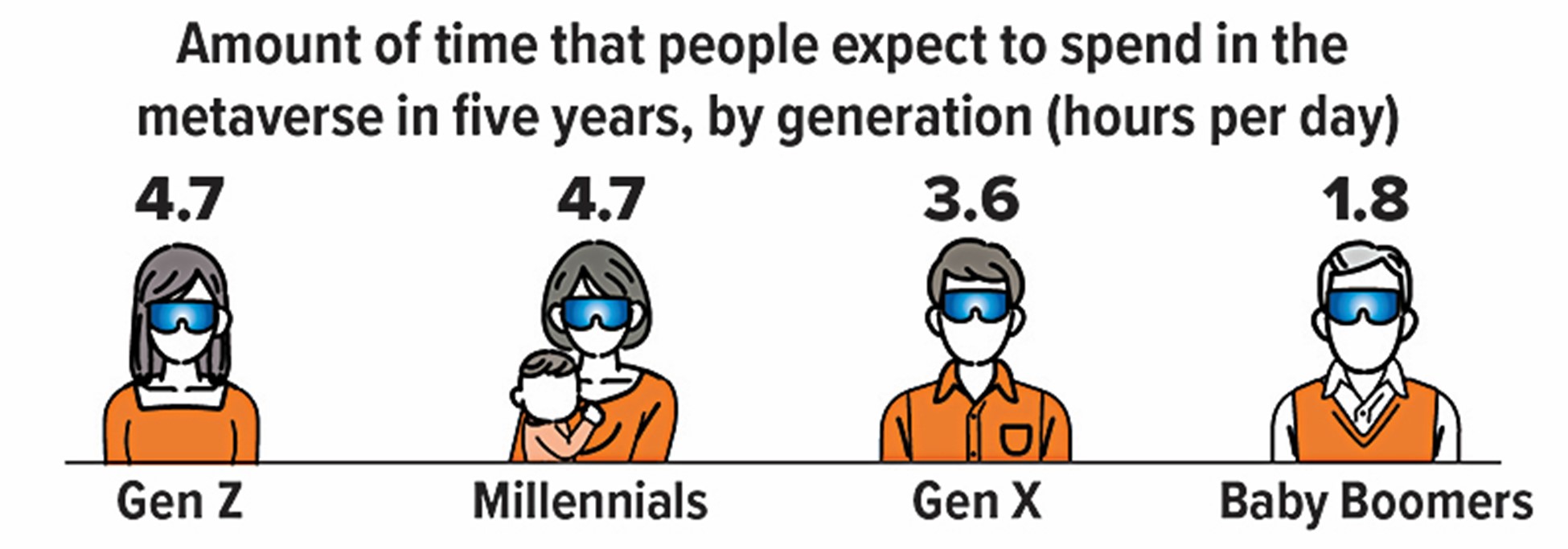Get Ready to Visit the Metaverse
If you can't help but notice a growing fascination with "the metaverse," both in pop culture and the financial news, you may be wondering what all the buzz is about. Contrary to how it sounds, there is no single, definitive metaverse — at least not yet. The term refers broadly to the various 3-D digital spaces that are being created with emerging technologies such as virtual reality (VR), augmented reality (AR), and artificial intelligence (AI), so that people can have more lifelike online experiences.
Giant tech companies and innovative start-ups have already spent billions of dollars to build virtual worlds and develop related software, devices, and accessories (such as headsets, bodysuits, and gloves with sensors). And some of them have little to show for it but steep losses.1
Even so, continuing expansion of the metaverse is expected to have a major impact on the real business world, potentially to the tune of $100 billion by the end of the decade.2
Is It the Future or Just a Game?
With virtual reality, users can interact with the digital images and video that they see inside their goggles. Augmented reality means that digital content is overlaid on top of real-world views. Mixed-reality applications combine elements of VR and AR. Each user is depicted by an avatar that represents that person's online identity.

Source: McKinsey, 2022
As it stands now, social gaming platforms are the most popular and familiar example of the metaverse. However, early adopters have donned their headsets to participate in immersive workout sessions and attend virtual live events such as concerts and music festivals. One survey found that many people can see themselves using the metaverse to shop (48%), seek health care (47%), travel virtually to other places (46%), catch up with friends and family (45%), learn something new (43%), collaborate with others (35%), or even go on a date (28%), in the next five years.3
Tech moguls seem confident that the metaverse is the inevitable evolution of the internet. Still, it's yet to be seen how compelling these virtual worlds will turn out to be. And with cutting-edge devices selling for $1,500 to $3,000 and up, it could be a while until access to the metaverse is affordable for the typical consumer.4
1–2, 4) Bloomberg.com, January 23, 2023
3) McKinsey, 2022
Content provided by Forefield/Broadbridge for use by Eliot M. Weissberg, CFP®, CFS, of Raymond James Financial Services, Inc., Member FINRA/SIPC. The Investors Center, Inc. is an independent company. The information contained in this report does not purport to be a complete description of the securities, markets, or developments referred to in this material. The information has been obtained from various sources considered to be reliable, but we do not guarantee that the foregoing material is accurate or complete. Any opinions are those of Eliot Weissberg and not necessarily those of RJFS or Raymond James. Expressions of opinion are as of this date and are subject to change without notice.
This information is not intended as a solicitation or an offer to buy or sell any security referred to herein. Past performances may not be indicative of future results. You should discuss any tax or legal matters with the appropriate professional.
M23-328263through 11/02/2024



